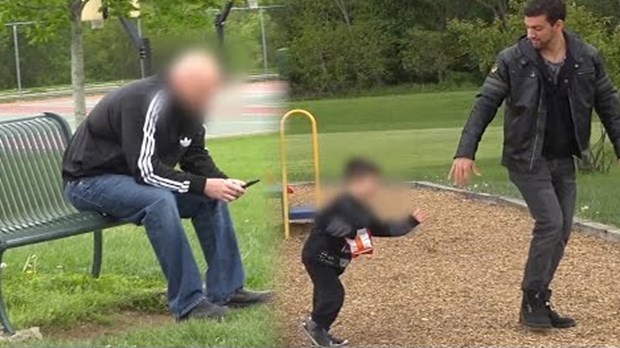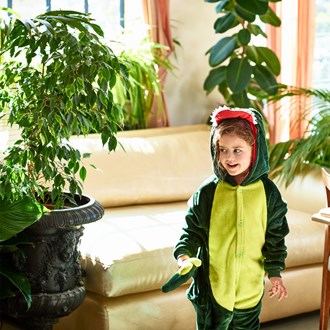Mum teaches dad horrible lesson about child abduction

This is scary!
By Practical Parenting
May 10 2017
A mum teamed up with YouTube prankster Joey Salads to teach her husband a scary lesson.
Concerned that her husband doesn’t pay attention when looking after their five-year-old son, Josh, mum Emily went to extreme measures to prove a point.
In a video posted on YouTube, Joey can be seen luring the boy away from the park with the promise of candy; the dad not looking up from his phone.
“Want candy? Let’s go. Want some more candy? Yeah? Come with me, we’ll go and get more,” Joey said as Josh took his hand.
Soon after, Emily was at the park confronting her husband.
“What the f*** is wrong with you? You’re not paying attention, sitting there one your phone not paying attention,” she yelled.
“I don’t know where the f*** he is. Where is he?” the father replied.
“That’s ‘cause you’re not paying attention to him,” Emily accused.
“We’ve set you up because I knew you don’t pay attention when you have your son.”
Speaking to news.com.au, Joey said: “I did other videos similar to this in the past. The mother reached out to me on Facebook talking about her situation.”
In 2015, another video of Joey’s went viral, highlighting how trusting some children can be, despite what their parents have told them.
Joey approached several parents in the park, asking their permission to try and abduct their children. All of the parents were confident their children would not leave with him.
In one example it was as simple as telling a girl he had puppies in his van and she left the park with him.
Why stranger doesn't work
The problem with teaching children about stranger dangers is that it isn’t always age-appropriate.
Small children tend to walk off with strangers because their parents have done a good job of making them feel safe and secure; they don’t fully understand the consequences.
Parents should instead teach children about Tricky People
Instead, parents should teach their children to understand their feelings and emotions and that it’s okay to say no.
A mother-of-two Jodie Norton wrote on her blog, Time Well Spent, what she teachers her kids instead of stranger danger: how to identify a "tricky person".
Speaking to Today, Norton said, "Most of the time, kids are learning 'stranger danger', which is cute and it rhymes but isn't really effective."
"'Tricky people' is certainly more effective because most strangers are not dangerous ... kids think a stranger is going to be somebody who is kind of scary looking or scary sounding, but statistically, if someone wants to harm a child they are not going to appear scary, they're going to be charming, have an enticing offer, and seem friendly."
Tricky people was created by Pattie Fitzgerald who founded Safely Ever After, a safety program for parents and kids.
"One of the safety rules I suggest is that safe adults never ask kids for help," she said.
"If someone tells a kid, 'I can't find my pet' or 'I need help carrying something to my car', for example, that's a thumb down until you ask first - until you check with your safe adult."






